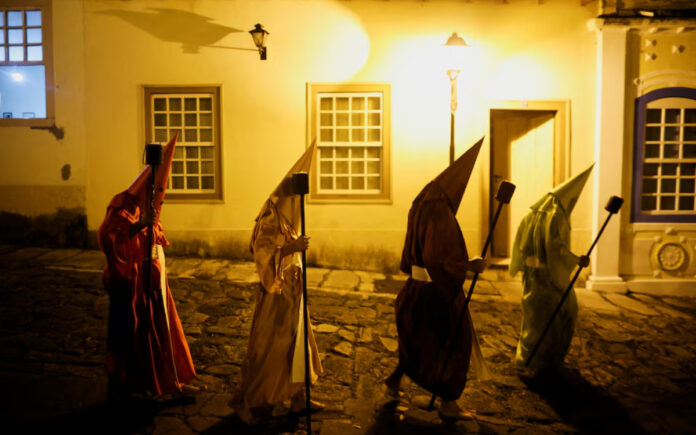Rio De Janeiro: Brazil, long recognized as the world’s largest Roman Catholic nation, is witnessing a significant shift in its religious landscape. Newly released data from the 2022 national census by the Brazilian Institute of Geography and Statistics (IBGE) reveals a continued decline in the number of Roman Catholics, while evangelical Christianity and non-religious affiliations are rapidly gaining ground.
The latest census shows that Brazil had 100.2 million Roman Catholics in 2022, representing 56.7% of the population. This marks a notable drop from 2010, when 105.4 million Brazilians identified as Catholic, comprising 65.1% of the population. It reflects an accelerating trend that has been observed for decades.
In contrast, evangelical Christians surged in numbers, growing to 47.4 million in 2022 — or 26.9% of the population — up from 21.6% in 2010. The increase of 12 million adherents is the highest ever recorded for the denomination in Brazil and underscores the shifting dynamics of religious identity in the country.
This transformation could have political implications for President Luiz Inácio Lula da Silva, whose left-wing Workers’ Party has historically faced challenges appealing to evangelical voters. A recent Quaest poll found that 45% of Catholics approve of Lula’s administration, while approval drops significantly among evangelicals, with only 30% in favor.
Maria Goreth Santos, an analyst at IBGE, noted that the decline in Catholic affiliation is not new. “The share of Catholics in Brazil has been dropping since the beginning of official records in 1872,” she said. At that time, Brazilians were classified simply as Catholic or non-Catholic, and enslaved people — who formed a large segment of the population — were automatically recorded as Catholics regardless of their personal beliefs.
Also Read | Abrego Garcia Faces Migrant Smuggling Charges After Controversial Deportation Reversed
Despite the downward trend, Catholicism still remains the most practiced religion in Brazil. However, its prevalence varies by region, with fewer adherents in the Amazon and stronger numbers in the traditionally Catholic Northeast.
The 2022 census also revealed a growing secular segment of the population. Those who identified as having no religion rose to 9.3%, totaling 16.4 million people — up from 7.9% in 2010. Meanwhile, Afro-Brazilian faiths such as Umbanda and Candomblé experienced a revival, with their share rising from 0.3% to 1%.
Also Read | Trump Says Xi Jinping Agrees to Resume Rare Earth Mineral Exports to US
This shifting religious composition points to a broader cultural transformation underway in Brazilian society, one that could reshape everything from political allegiances to social values in the years to come.



